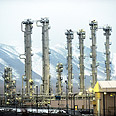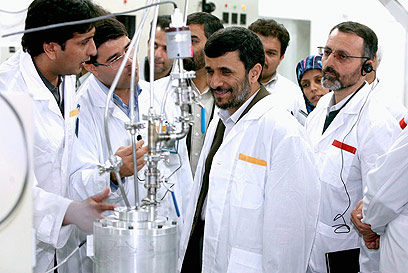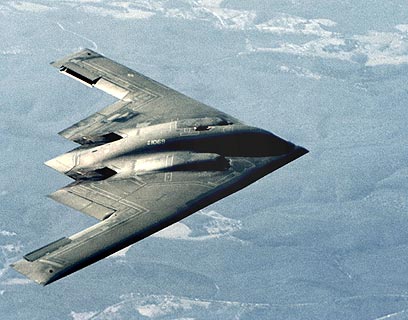
'Iran could be nuclear in one year's time'
New report by AEI Institute suggests Iran's nuclear ambitions cannot be curbed; focused military strike at present time may be more effective than pursuing deterrence policy
WASHINGTON – A report compiled by the American Enterprise Institute for Public Policy Research (AEI) suggests that " there is a real chance that Western efforts to stop Iran from acquiring a nuclear weapon will fail," Ynet learned Tuesday.
Should that be the case, the report says that the United States would have to "lead an international effort to contain Iran and deter the Islamic Republic from using its nuclear weapons capability."
Relates stories:
- Report: Iranian forces on war alert 'Iran's missile program suffered serious setback' Iran: We'll fire 150,000 missiles at Israel if attacked
The AEI, a conservative Washington think-tank, is set to release its report, titled "Containing and Deterring a Nuclear Iran," later on Tuesday.
The report was six months in the making and according to its authors, any serious US policy on Iran must operate under the premise that the Islamic Republic will become a full fledged nuclear power by 2013.

Iranian President Ahmadinejad in Natanz facility (Photo:EPA)
"The report is very much an acknowledgement of the very real possibility of failure of the strategy to prevent Iran from obtaining a nuclear weapon, and any responsible party should recognize that failure is an option," AEI Vice President Danielle Pletka was quoted by Foreign Policy Magazine as saying.
"There's been a huge disservice done by all who have spent their lives in denial of that possibility. Whenever you devise a strategy for what happens before a country gets a nuclear weapon, you should have a strategy for what happens after they get one as well."
The project brought together AEI experts on Iran and US foreign policy. The panel attempted to determine "what would be needed to create the maximum level of confidence that, if Iran does develop a nuclear weapon, it would not decide to use it," the authors said.
"While there can never be certain deterrence, Cold War presidents often had confidence that the United States had sufficient military power to support a policy of containment through a strategy of deterrence; for most of the period they felt that deterrence was assured," the report states.
"It is worth repeating Dean Acheson's basic formulation: 'American power would be employed in stopping (Soviet aggression and expansion), and if necessary, would inflict on the Soviet Union injury which the Moscow regime would not wish to suffer.' Assured deterrence began with assured destruction of the Soviet regime."
"Take out Soviet and Moscow from Acheson's quote, and sub in Iran and Tehran. Are we willing to inflict on Iran injury which the Tehran regime would not wish to suffer? I doubt it," Pletka warned. "There's no question that a country can be deterred from using a nuclear weapon, the only question is if there is the will to put those tools in place."
'Prevention is better than strike'
The report presumes that Iran could realize its nuclear ambitions before the 2012 US presidential election, and that the Obama Administration is "unwilling to go to war with Iran before November 2012 over the issue."
"even a limited strike by Israel would not achieve a full destruction of Iran's nuclear capabilities," AEI experts believe.
"Strategically, Iran's leaders would be foolish to wait until after November 2012 to acquire the capability to permanently deter an American attack on their nuclear program," the report states.

More effective than diplomacy? B-2 Stealth Bomber (Photo: AP)
"Sound American strategy thus requires assuming that Iran will have a weaponized nuclear capability when the next president takes office in January 2013. The Iranians may not test a device before then, depending, perhaps, on the rhetoric of the current president and his possible successor, but we must assume that they will have at least one."
"Make no mistake – it would be vastly preferable for the United States and the world to find a way to prevent Iran from crossing that threshold, and we wholeheartedly endorse ongoing efforts that might do so," the authors write. "But some of the effort now focused on how to tighten the sanctions screws must shift to the problem of how to deal with the consequences when sanctions fail."
"Iran remains the leading sponsor of international terrorism, a proliferator of missiles and nuclear materials, a regional aggressor, and an abuser of human rights. We cannot afford to risk the security of future generations on a policy of containment," the report concluded.
"Deterrence and containment are the default mode for the people who are not up for going to war, but we wanted to point out that this was not a cheap or easy alternative, which is the way a lot of people make it sound," AEI experts Tom Donnelly said.
- Receive Ynetnews updates directly to your desktop










